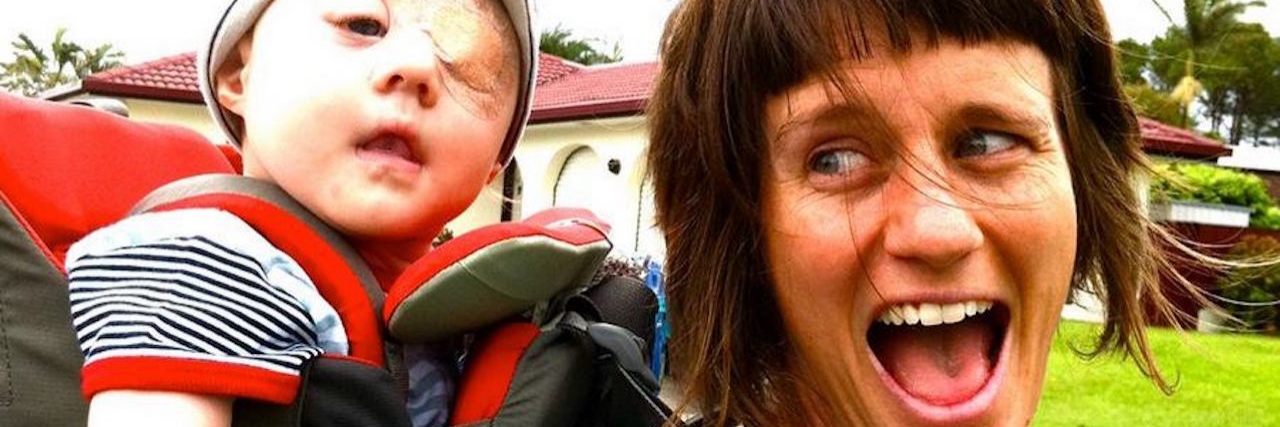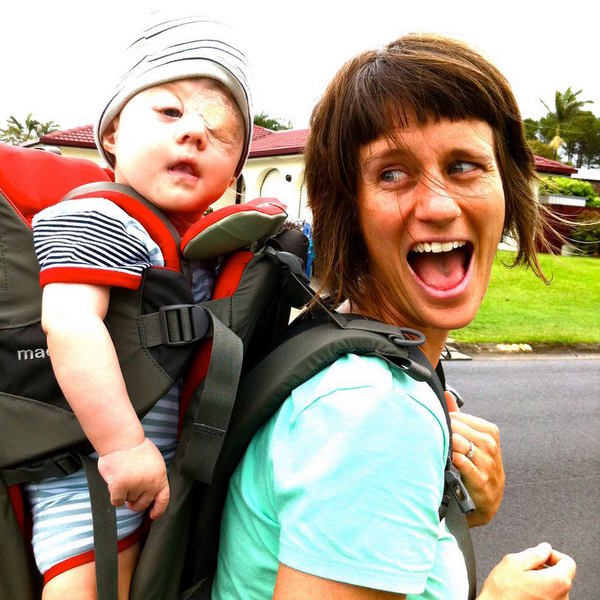“Why does his face look weird?”
She said it with a look as if she were trying to solve a puzzle — all frowns and confusion. This look and similar questions are something we encounter every week, predominantly from children, although an occasional adult asks, too. Some are direct, while others stumble over a few uhms before getting out the intended query.
Before I was pregnant, I would think about the children I wanted. And the thought, or fear I guess, that crossed my mind was, “I hope they are OK. I hope they are normal.” I get nervous even typing that sentence because it sounds so completely horrible. I know I wasn’t alone with that fear. My husband, Steve, admitted similar thoughts, and I can only assume most of the human population just want their children to be “normal.” When my son, Boston, was born I fell head over heels in love with him. I wouldn’t swap him for any baby in the whole wide world. But I did have times of absolute grief when I realized he was automatically put in the “different” pile.
I worried how it would affect him. His emotions, self-worth, getting ahead in the world, being accepted by others and his love life. Would he be teased or bullied? Would this lead to other problems? And yes, I will admit when I first saw those puzzling looks and heard comments about “that baby’s head,” my mama bear bristles stood on end and my heart ached for him. I just wanted people to see him as Boston, not as the baby with the different head and not as the kid with Saethre-Chotzen syndrome.
But guess what? We are humans, and humans need to understand what they see. They need to explain their world in part through this sense, and they’re also fearful of the unknown. To those who don’t know him, Boston will be someone who looks unique. He may be described in this way just like someone is described by the way they dress, the color of their skin, the gait they walk or the height they reach.
Model Cameron Russell said it perfectly during a TED talk: “Image is powerful, but also, image is superficial.” What I have come to embrace is that Boston is different. The way he looks is not all of who he is, but it’s a powerful part of him. I don’t want him to feel like he has to hide those differences or try to blend in with everyone else. I want him to be proud of each piece of the puzzle that makes him whole, and I want him to feel confident to express who he is to everyone he meets.
What I want for myself is to leave all the prejudices I unconsciously had far behind me. There were times when I was scared of those who were different. They were obviously harmless, but they were still different enough for me to feel uncomfortable and scared. I wouldn’t act correctly or I would offend them. Now I am the one seeing puzzled stares.
When someone takes the time to actually voice their questions (in a polite way of, course), I really admire them. I wish we could all feel safe and confident about embracing each others’ differences. Maybe then there would be less fear, less bullying and less trying to hide our true selves. I ask that anyone who can relate to what I am saying or feels moved at all, please practice acceptance of others and teach your children through all you do and say.
So how do I answer when someone asks me, “Why does his face look weird?” Well simply, that’s just the way Boston was born. We are all born different, and that’s a really fantastic thing.


